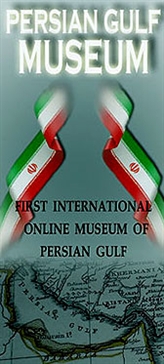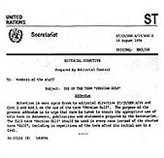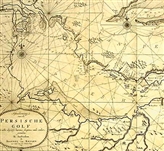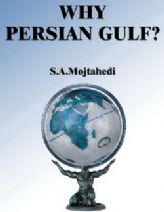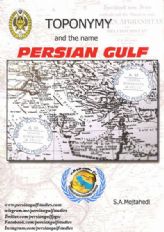Iran’s sovereignty over 3 Persian Gulf islands is non-negotiable
Date: 5/19/2014 7:25:58 PM
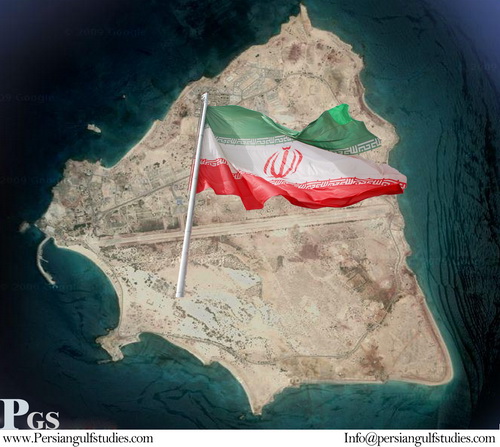
UAE’s baseless claims on Iranian islands serve hegemonic powers’ interests in Persian Gulf
The Persian Gulf is one of the most strategic areas in the world and contains abundant strategic resources.
The entire Persian Gulf was once part of Iran’s territorial waters and has had a huge influence on the country’s cultural, social, and economic life, and still does.
The great geostrategic importance of the region has always attracted the attention of the major powers. The colonial powers once dominated the region and benefited greatly from its vast resources, and when they were forced to leave the area, they made serious efforts to maintain their interests in the region. Sowing discord between Persian Gulf states is one of the main policies adopted by the Western hegemonic powers for maintaining their interests in the Persian Gulf region.
The recent claims by the United Arab Emirates about three Iranian islands in the Persian Gulf are actually part of an old hegemonic agenda meant to prevent the two Muslim nations from establishing constructive relations.
According to historical documents, the islands belong to Iran and the country’s sovereignty over the islands is not negotiable. Iranian President Mahmoud Ahmadinejad’s visit to Abu Musa Island was just a part of his tour of the southern province of Hormozgan. UAE officials should be aware that the trip was an internal issue and not something that they can use as a propaganda tool against the Iranian government. However, UAE officials seem to have become accustomed to adopting hasty and premature decisions.
Kianoush Kiani Haftlang is the director of the Abu Reyhan Birouni Research Institute, which is affiliated with the Center for the Great Islamic Encyclopedia.
Iran’s sovereignty over 3 Persian Gulf islands is non-negotiable
Iranian Foreign Ministry spokesperson Ramin Mehmanparast said on Wednesday that Iran’s sovereignty over the three Persian Gulf islands of Abu Musa and the Greater and Lesser Tunbs is not negotiable.
Mehmanparast made the remarks in response to the statement that was issued at the end of the special meeting of foreign ministers of the Persian Gulf Cooperation Council member states, which was held in the Qatari capital Doha on April 17.
In their statement, the member states condemned Iranian President Mahmoud Ahmadinejad’s visit to Abu Musa on April 11 as a “provocative act and a flagrant violation” of the United Arab Emirates’ sovereignty over the three islands and contrary to the policy of good neighborliness, the Gulf Times newspaper reported.
They also wrote that the visit would not change the historical and legal facts that assert the sovereignty of the UAE over the islands.
The UAE has repeatedly questioned Iran’s sovereignty over the three Persian Gulf islands of Abu Musa and the Greater and Lesser Tunbs and urged Tehran to agree to take the dispute to the International Court of Justice in The Hague or engage in direct negotiations.
Iran says its sovereignty over the islands is not negotiable but has called for talks with the UAE to clear up misunderstandings.
Mehmanparast condemned the PGCC statement and called it a “blatant interference in the Islamic Republic of Iran’s internal affairs.”
Iran’s sovereignty over the three islands is indisputable, he added, noting that the country’s principled policy is to expand relations with its neighbors and adhere to the principles of trust and good neighborliness.
Two hundred and twenty five Iranian MPs issued a statement on Wednesday dismissing the UAE’s claims of sovereignty over the three Persian Gulf islands.
The MPs wrote that Ahmadinejad’s visit to the island of Abu Musa was an “internal issue” but stated that the Islamic Republic will negotiate with UAE officials to clear up misunderstandings.
The UAE recalled its ambassador to Tehran for consultations on April 11 over the issue.
In addition, the Emirates news agency reported on April 16 that the Minister of State for Foreign Affairs Anwar Gargash had summoned the Iranian ambassador to Abu Dhabi to protest about Ahmadinejad’s visit.
The UAE foreign minister met ambassadors representing UN Security Council member states in Abu Dhabi on April 15 to convey his country’s protest to Ahmadinejad’s visit.
